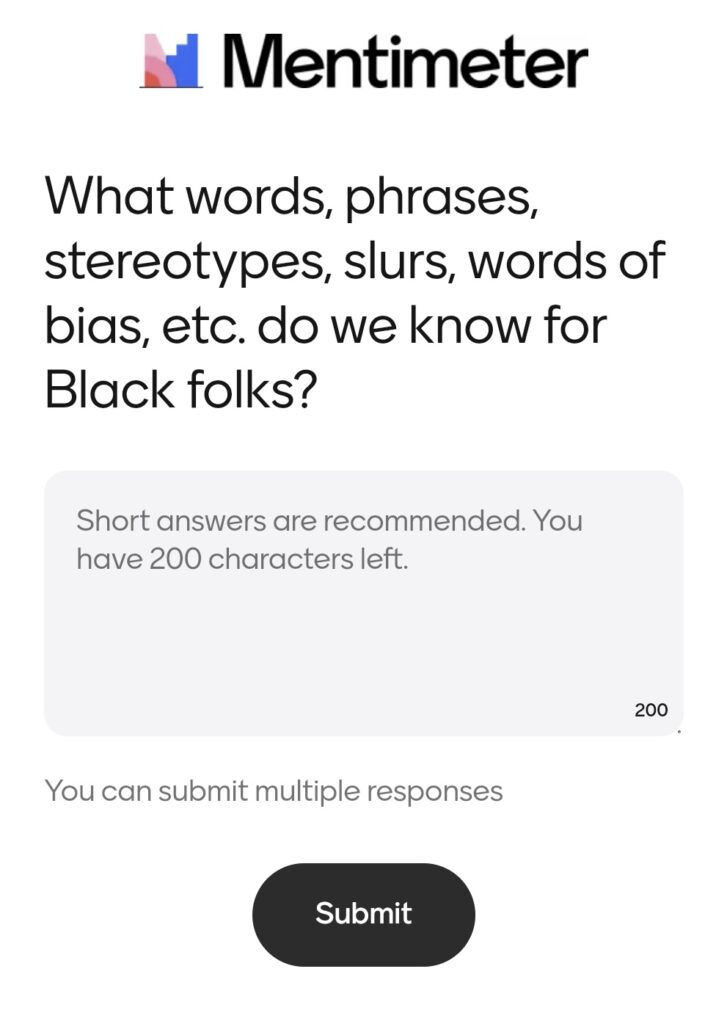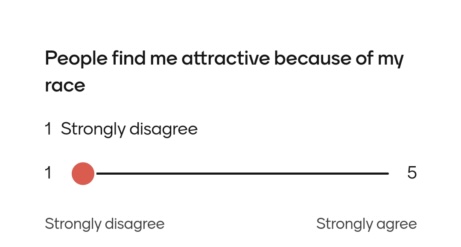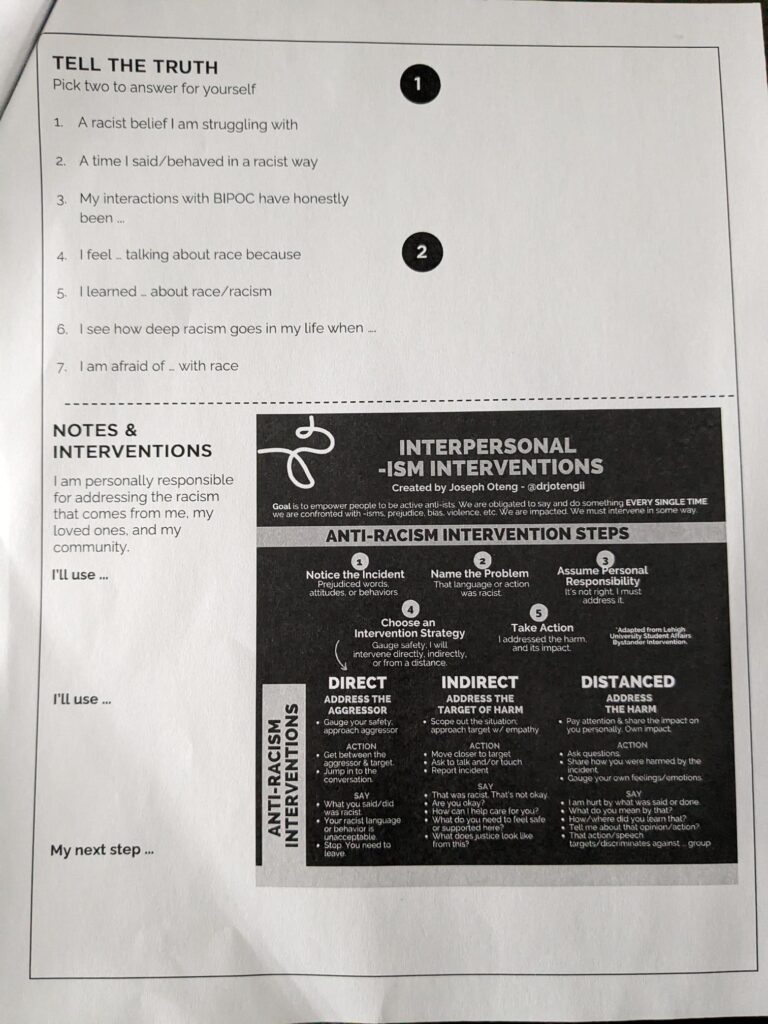‘Re-Orientation’ Asks UW Law Students To Share Racial Slurs And Confess ‘How Deep Racism Goes In My Life’
A mandatory “re-orientation” for first-year University of Wisconsin Law School students last week included a survey prompting participants to share racial slurs and instruction that colorblindness is bad and that racial minorities cannot be racist, according to a source who attended Friday’s session.
Like other euphemistically-titled “diversity, equity, and inclusion” (DEI) programming, the presentation on Friday preached the usual dogmas of Marxist-steeped critical race theory and “anti-racism” that have infiltrated U.S. college campuses, the source said. These doctrines teach that the United States — particularly its legal system — is systemically racist, that “whiteness” must be “dismantled,” and that the only solution to past racism is reverse racism.
“‘Colorblindness’ negates the cultural values, norms, expectations and life experiences of people of color,” declared one of the pamphlets that students were asked to review before the session. “By saying we are not different, that you don’t see the color, you are also saying you don’t see your whiteness. This denies the people of colors’ experience of racism and your experience of privilege.”
Students were lectured by Joey Oteng, who bills himself as a “social justice educator/PhD student, lawyer, blogger,” and “Educational Consultant” on his Instagram page. Oteng became the dean’s fellow for inclusive excellence at the Ohio State University Moritz College of Law in 2022, according to the school’s website.
Sources say the DEI session, part of a “re-orientation” for freshman law school students, was mandatory.
UW-Madison spokesman John Lucas told The Federalist the session “was held in partial fulfillment of ABA (American Bar Association) Standard 303’s requirement that law schools provide education to their students on ‘bias, cross-cultural competency, and racism.’”
Critics such as University of Chicago law professor Brian Leiter have pointed out that the ABA’s updated standards are, as The Federalist Society paraphrased Leiter, “ambiguous, costly, burdensome, ineffective, risky, and counter-productive.”
Students Prompted to Confess ‘How Deep Racism Goes in My Life’
An official from the University of Wisconsin Law School did not return The Federalist’s multiple requests for comment on Friday.
“Re-Orientation is intended to do just that – reorient you now that you have your first semester of law school behind you and a new semester ahead,” wrote Lauren L. Devine, Assistant Dean for Student Affairs at the law school, in an email to students. Students were instructed to review an article about “28 Common Racist Attitudes and Behaviors” and complete a “Race Timeline Worksheet” before the two-hour-plus sessions.
According to Devine, Oteng’s presentation was a “follow-up to the DEI session” the would-be law practitioners attended during law school orientation at the beginning of the fall semester.
The source, who spoke to The Federalist on condition of anonymity, said Oteng used a Mentimeter interactive survey to gather real-time feedback from participants about race, racism, and societal biases. Under the prompt “I understand institutional and systemic racism,” the survey asks respondents to answer on a scale that ranges from “unsure” to “confidently.”
The source said it felt more like a confessional than an educational session.
One section of the survey bizarrely asked students to share “words, phrases, stereotypes, slurs, words of bias, etc.” associated with racial groups such as “Black folks,” “Middle Eastern communities,” “Latin/e/o/a/x communities,” “Native/indigenous communities,” and “white communities.”
When students were asked to provide slurs and other words for black people, the “N-word” came up quite a bit, according to the session attendee — as did the term “cracker” when Oteng asked for slurs used to describe white people. One respondent described white people as “boring as f-ck.”
The source said there was a lot of chuckling, from the facilitator and some in the crowd, during the section on stereotypes about white people.
“When it came to slurs about black people, Native Americans, Asians and Middle Eastern people, it was a very serious moment. When it got to white people and the derogatory terms used for white people, [Oteng] was implying that it was OK to laugh at white slurs because white people don’t have any problems,” the participant said.

Some questions were just weird. One asked participants to answer if “People find me attractive because of my race,” on a scale from “strongly disagree” to “strongly agree.”

The survey also asked respondents to answer whether they “think people of color can be racist.” But the session’s literature made it clear there was only one right answer.
“Let’s first define racism with this formula: Racism =racial prejudice + systemic, institutional power. To say people of color can be racist, denies the power imbalance inherent in racism,” the “28 Common Racist Attitudes” handout insists, adding:
Certainly, people of color can be and are prejudiced against white people. That was a part of their societal conditioning. A person of color can act on prejudices to insult or hurt a white person. But there is a difference between being hurt and being oppressed. People of color, as a social group, do not have the societal, institutional power to oppress white people as a group. An individual person of color abusing a white person – while clearly wrong, (no person should be insulted, hurt, etc.) is acting out a personal racial prejudice, not racism.
A worksheet instructing law school students to “Tell the Truth” instructed students to respond to two prompts from a list, including a “racist belief I am struggling with,” a “time I said/behaved in a racist way,’ and “how deep racism goes in my life.”

The session delved into the left’s religion of anti-racism, which proposes the “only remedy to past discrimination is present discrimination.” Oteng taught them — or retaught them — that “anti-racism” is “action-oriented,” “self-serving,” and a series of “lifelong processes.”
“It is egotistical and self-centered to think we can bypass self-education and self-work to engage in authentic allyship, advocacy, and activism. The result is harm for ourselves [and] others,” one of the handouts demands.
Marxist Theories ‘Taught Like Dogma’
Lucas, the UW-Madison spokesman, said the session was “interactive, with ample opportunities for students to engage in dialogue with each other.”
“A core goal was to help students develop their critical thinking skills with respect to these topics,” he said.
Asked if the law school planned to offer a counterpoint to the controversial presentation, the spokesman for the far-left institution of higher education demurred, saying the university doesn’t expect students to “automatically accept the views expressed in the document referred to, any more than they would the reasoning of a legal brief, judicial opinion, or their professors.”
“Accordingly, we welcome and encourage vigorous debate over important questions of law and policy, and this session provided a forum for such discourse,” he said.
But the source who attended Friday’s session said the training was “taught like dogma.”
“I can’t imagine saying in these discussions something like, ‘Maybe the law’s not that bad.’ You would have just been lambasted,” the source said. “It would have taken a lot of courage to actually have said anything.”
Lucas did not answer The Federalist’s questions on how much the “training” cost, who footed the bill for it, or how much the facilitator was paid.
Skylar Croy, associate counsel with the Wisconsin Institute for Law & Liberty (WILL), said the apparently mandated course was not a requirement when he was going through the UW Law School. He graduated with his law degree in 2019.
“To see this happen to a university I love is so disappointing and for the sake of true education, we hope they reconsider discussing this subject matter during this mandatory meeting,” Croy said in a statement from the Milwaukee-based conservative law firm. WILL has asked the university to “take a serious look at the materials used in the session and decide if this is accomplishing its core goals and mission.”
The law school’s DEI dogma should come as no surprise to those who have been watching Wisconsin’s contentious battle on the subject over the past several months. Last month, the University of Wisconsin System Board of Regents initially rejected a deal with Republican lawmakers that would have provided $800 million in funding for raises, new buildings, and special projects in exchange for the system freezing DEI positions and checking the spread of DEI programs. A few days later, the board approved the agreement, ending a six-month stalemate.
It appears the University of Wisconsin Law School, however, didn’t get the memo.
Matt Kittle is a senior elections correspondent for The Federalist. An award-winning investigative reporter and 30-year veteran of print, broadcast, and online journalism, Kittle previously served as the executive director of Empower Wisconsin.





Comments are closed.